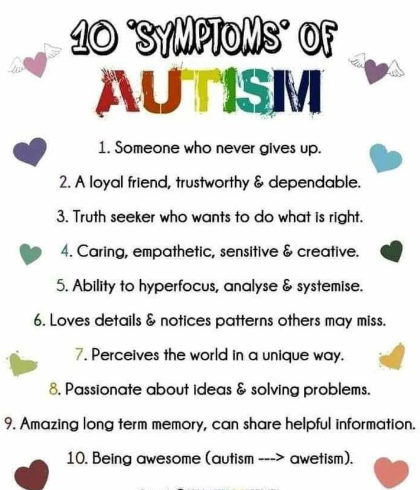BOURSESSENEGAL – High functioning autism (HFA) is a term that describes individuals on the autism spectrum who have average or above-average intelligence and can often navigate daily life with relative independence. However, this does not mean they face no challenges. In this guide, we will explore the intricacies of high functioning autism, its characteristics, how it affects individuals, and ways to provide support.
What is High Functioning Autism?
High functioning autism refers to those with autism spectrum disorder (ASD) who possess language skills and cognitive abilities that allow them to engage effectively in social interactions and academic settings. Often, people with HFA can manage routine tasks but may struggle with social nuances and sensory overload. Understanding the characteristics of HFA can help foster acceptance and provide the necessary support.
Key Characteristics of High Functioning Autism
Individuals with high functioning autism exhibit a range of characteristics. Some of the most common traits include:
- Strong Focus on Interests: Many individuals with HFA develop intense interests in specific subjects. This passion can lead to deep knowledge and expertise in their chosen areas.
- Social Challenges: Despite having average or above-average intelligence, those with HFA often find social interactions challenging. They might struggle with understanding social cues, making eye contact, or interpreting body language.
- Sensory Sensitivities: Sensory processing issues are common in high functioning autism. This means that everyday sounds, lights, or textures can be overwhelming, leading to anxiety or discomfort.
- Routine-Oriented Behavior: Individuals with HFA often thrive on structure and predictability. Changes to their routines can cause distress.
- Difficulty with Emotional Regulation: Managing emotions can be a challenge. Individuals may experience heightened anxiety or frustration, especially in unfamiliar situations.
How High Functioning Autism Affects Daily Life
Living with high functioning autism presents unique challenges that can impact various aspects of life, from education to employment and personal relationships. Understanding these effects is crucial for offering appropriate support.
Education and Learning
In educational settings, students with HFA may excel academically, particularly in subjects that interest them. However, they might struggle with group work or verbal communication. Teachers can play a significant role by creating inclusive environments, providing clear instructions, and allowing for individual learning styles.
Employment Challenges
In the workplace, individuals with high functioning autism can be valuable assets, often bringing creativity and attention to detail. However, they may face obstacles in social interactions with colleagues or navigating office dynamics. Employers can facilitate a more inclusive environment by offering clear communication and support systems.
Personal Relationships
Building and maintaining friendships can be challenging for those with HFA. Misunderstandings or difficulties in communication may arise, making social interactions feel daunting. Encouraging open communication and fostering patience among peers can help strengthen these relationships.
Supporting Individuals with High Functioning Autism
Supporting someone with high functioning autism involves understanding their unique needs and challenges. Here are several strategies to promote well-being and inclusion.
Create a Structured Environment
Individuals with HFA often benefit from routines. Establishing a predictable environment can reduce anxiety and provide a sense of security. Use visual schedules and reminders to help them navigate daily tasks effectively.
Encourage Communication Skills
Fostering communication is vital. Encourage individuals to express their thoughts and feelings. Use role-playing scenarios to practice social interactions and help them become more comfortable in various situations.
Embrace Their Interests
Encouraging passion projects can boost self-esteem and provide a sense of accomplishment. Whether it’s art, technology, or nature, allowing them to explore their interests can lead to personal growth and fulfillment.
Promote Sensory Awareness
Recognizing sensory sensitivities is essential. Create a calming environment by minimizing overwhelming stimuli. Provide tools like noise-canceling headphones or fidget toys to help them manage sensory overload.
Foster Independence
While providing support is crucial, promoting independence is equally important. Encourage individuals to take on responsibilities, make choices, and develop problem-solving skills. This empowerment can boost confidence and self-reliance.
Resources for Families and Individuals
Navigating high functioning autism can be challenging, but many resources are available to provide support. Here are some valuable options:
Support Groups
Joining support groups can be beneficial for both individuals with HFA and their families. These groups provide a safe space to share experiences, seek advice, and connect with others facing similar challenges.
Professional Counseling
Therapists specializing in autism can offer tailored strategies for coping with social situations, managing anxiety, and developing life skills. Seeking professional help can lead to significant improvements in daily functioning.
Educational Resources
Numerous organizations provide educational materials about high functioning autism. Websites, books, and webinars can offer insights into effective strategies for both individuals and caregivers.
Conclusion
High functioning autism encompasses a unique set of challenges and strengths. By understanding its characteristics, individuals can navigate daily life more effectively. Support systems, structured environments, and open communication are crucial in promoting well-being and independence. As we work towards greater awareness and acceptance, we can create a more inclusive society for everyone.
Remember, every individual on the autism spectrum is unique, and their experiences may vary. With the right support, those with high functioning autism can thrive and contribute meaningfully to their communities.
REFERENCE : https://www.health.com/



